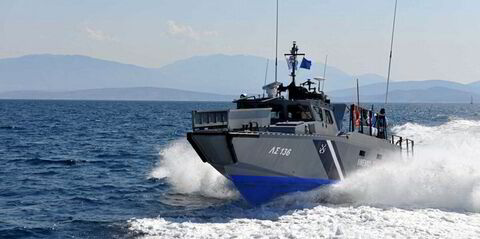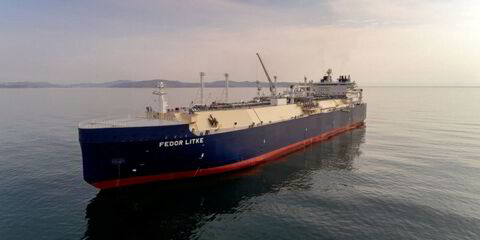Seacor Holdings reported a slump in third-quarter profit for its ocean shipping division, adding to the diversified company's lower-than-expected earnings.
The New York-listed conglomerate reported a $17.1m profit in its ocean transportation and logistics services division, a 46.8% drop from the $32.2m earned in the same period of 2018, according to financial data submitted to the US Securities and Exchange Commission.
The decline in operating was more modest, slipping to $17.4m from $19.5m.
The ocean shipping segment, which includes the company's car carrier, dry cargo, tanker and rail ferry businesses, saw its revenue sink to nearly $103m from almost $110m a year earlier.
The company said operating revenue in its bulk transportation business fell by $8m in the quarter as a result of the return of a leased tanker to its owner, the dry docking of another tanker, and lower spot and time-charter rates.
Also within its shipping portfolio, the quarter also saw a $1.5m drop in its logistics services business as both military and commercial cargoes declined.
Operating expenses for Florida-based Seacor's shipping business grew by 3.4% to $66.9m in the third quarter.
Nine-month dip
The segment's quarterly result pulled down profits over the first nine months of the year to just under $55.3m, a decline from the $58.8m in the same period of 2018.
Despite the drop in profits, executive chairman Charles Fabrikant highlighted the $238m contract backlog after taking full control of its Sea-Vista tanker joint venture in August.
| Q3 2019 | Q3 2018 | |
| Revenue | $103m | $110m |
| Operating costs | $66.9m | $64.7m |
| Operating income | $17m | $30.3m |
| Segment profit | $17.1m | $32.2m |
"The highlight of the quarter was the acquisition of our partner’s interest in Sea-Vista, strengthening our position in the Jones Act market and also adding substantial revenue backlog," he said.
The company's oceangoing shipping division controls 73 vessels, including tankers, bulkers, oceangoing barges, car carriers, ro-ros and rail ferries.
The oceangoing shipping slump came as Seacor Holdings reported a $6.4m profit attributable to shareholders, down from $17.m a year earlier.
Outside of its ocean shipping and logistics division, Seacor is involved in the inland barges sector and controls Witt Obrien's environment response company.
Its inland barge business reported a $2.26m loss, reversing a segment profit of $2.74m in the same period of 2018, according to the SEC filing. Operating income fell to $600,000 from $4.3m a year earlier.
"The quarter’s disappointing results were primarily due to the extremely difficult conditions in the inland transportation and logistics services segment and a more typical level of demand for our emergency response services," Fabrikant said.
Suffering persists
"The third calendar quarter usually produces improved results in the inland sector compared with the second quarter, but this quarter the inland river system continued to suffer from the carryover effects of extreme flooding earlier in the year."
The US-China trade tussle and competition from cheaper South American grain were added challenges. that continue today, he said.
"Corn export demand continues to be dismal with shipments approximately 60% and export sales approximately 45% below last year," he said.
"Export sales are also lagging. Brazil, whose share of the soybean export market increased after the commencement of the trade dispute, continues to compete aggressively."
Seacor Holdings' earnings were "marginally short of our expectations, although Ebitda was somewhat better than anticipated," Stifel analyst Ben Nolan said.
"As expected the inland barge transportation business while still seasonally stronger was hampered by high water and trade restrictions," he wrote in a note to clients.
"The primary variance between our numbers and those reported by Seacor was a smaller gain from marketable securities than expected."





